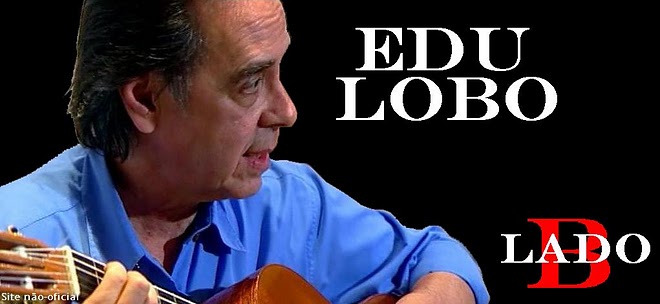
Produzido por Sergio Mendes
Gravado em julho de 1970 na California
Edu Lobo: guitar, vocal, conductor, co-arranger
Hermeto Paschoal: piano, eletric piano, flute, co-arranger
Oscar Castro-Neves: guitars
Claudio Slon: drums
Airto Moreira: percussion
Norman Herzberg: bassoon
Ron Cooper, Ray Kramer, Kurt Reher, Eleanor Slatkin: celli
Gracinha Leporace: vocal
Sergio Mendes: piano, co-arranger
1. ZANZIBAR (edu lobo)
2. PONTEIO (edu lobo-capinan)
3. EVEN NOW (edu lobo-paula stone)
4. CRYSTAL ILLUSIONS (edu lobo-guarnieri-lani hall
5. CASA FORTE (edu lobo)
6. JANGADA (edu lobo)
7. SHARP TONGUE (hermeto paschoal)
8. TO SAY GOODBYE (edu lobo- torquato neto-lani hall)
9. HEY JUDE (john lennon-paul McCartney)
Trecho de contracapa escrita por Leonard Feather:
"That Lobo's music is something special becomes very clear from the opening moments of 'ZANZIBAR'. In the introduction, that odd bass sound is Neto hitting the Fender with a drumstick; the 12-string guitar enters, than Lobo sings an angular, wordless melody, overdubbing his voice four times.
Gradually the theme gains in intensity. As Mendes said, it,s not quite bossa nova yet it has a rhythmic and melodic essence that is essentially South American.
"PONTEIO" won Lobo a first prize at a festival in 1968. The title refers to an ostinato-like strumming on the bass strings of the guitar. "EVEN NOW" has lyrics by Paula Stone and" TO SAY GOODBYE" has English lyrics by Lani Hall.
Gracinha, who replaced Lani in Brasil 66,sings in unison with Lobo on some tracks. At times they are joined by Paschoal's flute,which he plays with occasional echoes in a style originated by Roland Kirk.
What impresses me more than any other aspect of the album is the infinite variety achieved within the borders of Lobo's imagination. The vocals: solo,duo,multiple; English, Portuguese, vocalese. The added instruments: a cello section to reinforce the mood of his exquisite "CRYSTAL ILLUSIONS" (from a play Lobo scored in Brazil) and the bittersweet "Hey Jude"; and, on the latter, Norman Herzberg's bassoon, the buzz-flute, and the strings. The infinite "tristeza" of Lobo's voice and guitar, and the graceful cello solo by Ray Kramer, on "To Say Goodbye".
The ingratiating eight-bar baião rhythm in Paschoal's composition "Sharp Tongue". The sinuous upsweep of the melodic line in "Casa Forte". The spirited rhythms of "Jangada", whose lyrics, Lobo tells me are a call to victory in a raft race.
This is the new Brazilian-American-universal music, the post-Jobim generation that has developed out of the sambas of a decade ago. Its rhythms, and more particularly its harmony, clearly have their roots in the era of "One Note Samba" and "Desafinado". "We need that harmonic foundation", says Lobo. "The basement must be strong, or the house will fall down."
Sergio Mendes has said: "Lobo is the most important figure in the new wave of Brazilians artists.I take great pride in presenting this album."
We are indeed in Mendes's debt for advancing the career of a great young talent who will continue to evolve, to blend the beauty of his native idioms with newer concepts that grow constantly broader. With men like Lobo among us, the musico-ecologists need not worry: our air is growing purer every day.
Fonte: www.edulobo.com.br
